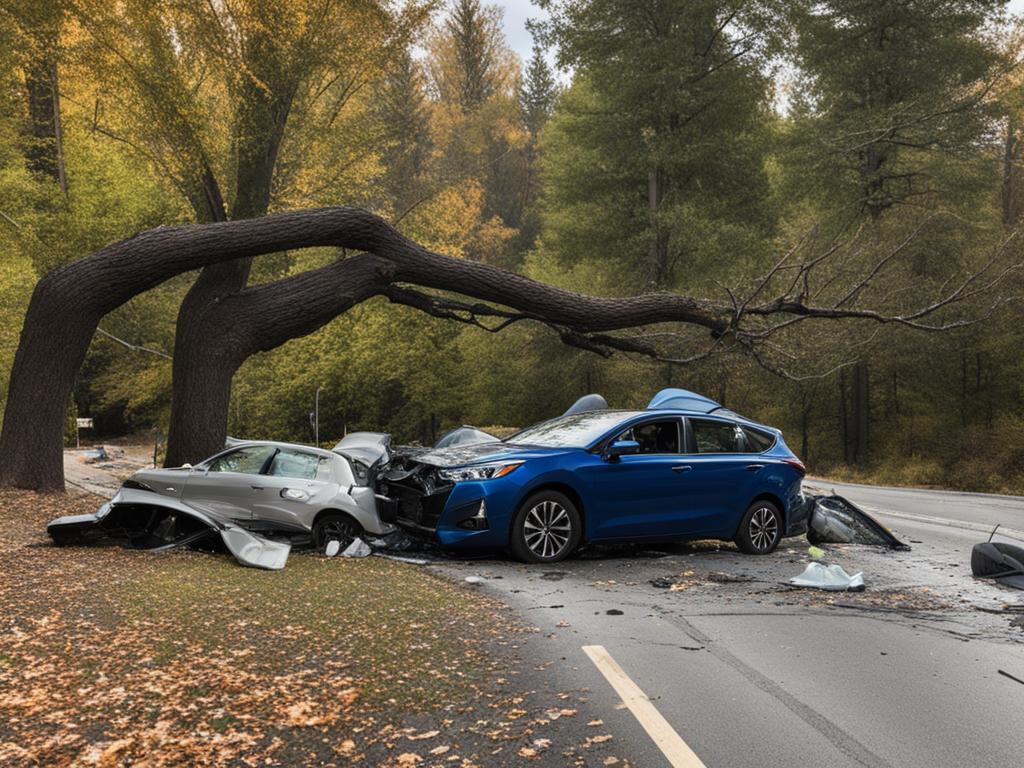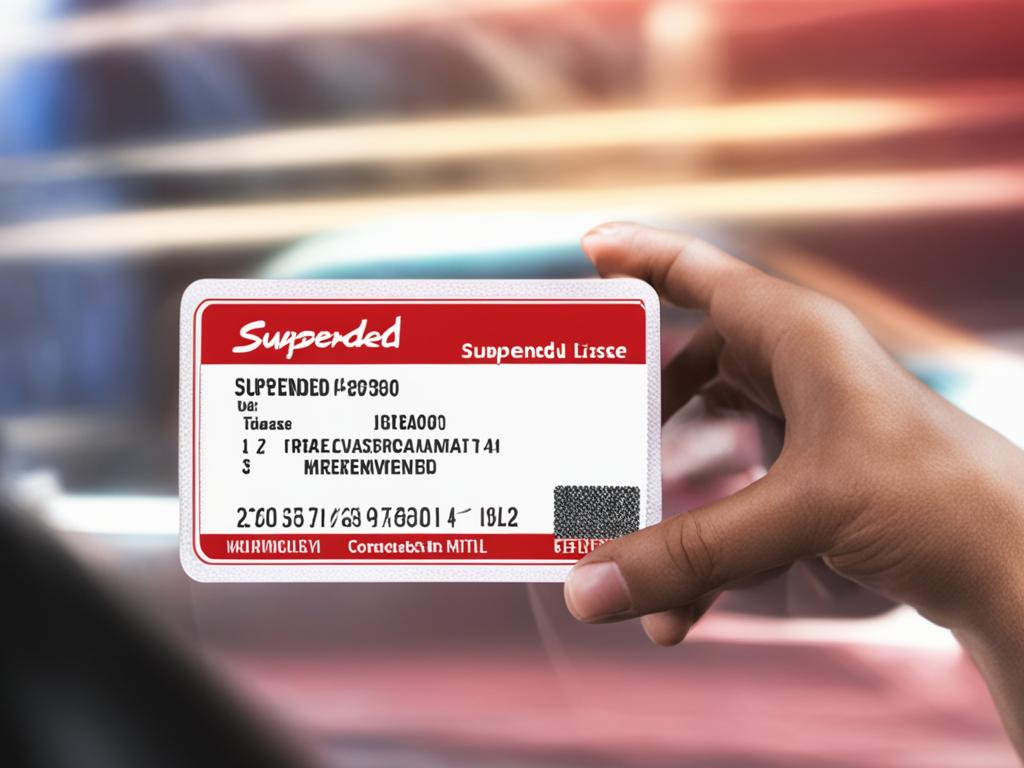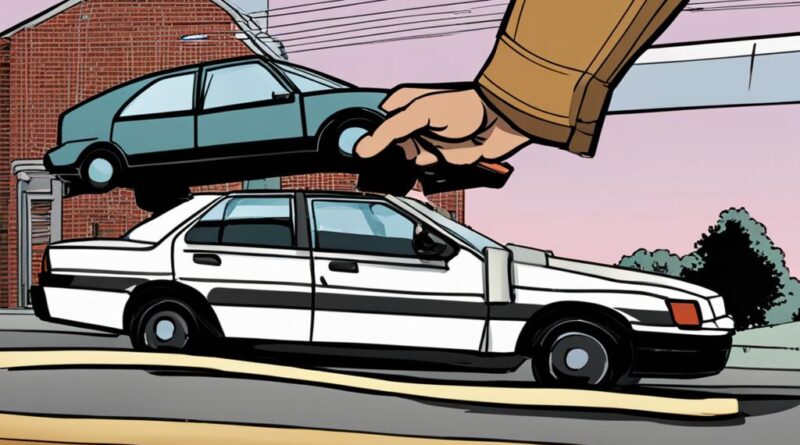Can I Get a No Insurance Ticket Dismissed? Find Out Now!
Driving without auto insurance is illegal in most states and can result in penalties such as fines and driver’s license suspension. If you have been cited for driving without insurance, it is important to understand your state’s laws and the potential consequences. In some cases, it may be possible to get a no insurance ticket dismissed by taking certain legal steps.
- Different states have different laws regarding driving without insurance, so it’s important to familiarize yourself with your state’s specific requirements.
- Some states provide affirmative defenses for driving without insurance, allowing drivers to argue that specific circumstances justified their violation.
- In some cases, getting insurance coverage after receiving a citation may lead to a dismissal or reduction of charges.
- Driving without insurance can result in hefty fines, license suspension, and other legal consequences.
- To increase your chances of getting a no insurance ticket dismissed, consult with a lawyer and understand the court’s requirements for proof of insurance.
State Laws on Driving Without Insurance
When it comes to driving without insurance, state laws play a crucial role in determining the consequences and potential ways to dismiss a no insurance ticket. Each state has its own set of laws regarding driving without insurance, and it is important to understand these laws to navigate the legal process effectively.
Some states treat driving without liability insurance as a strict liability offense, meaning that intent is not a factor in determining guilt. In these states, simply being caught without insurance is enough to face penalties and fines. Other states require the prosecution to prove intent in order to secure a conviction.
Understanding your state’s laws is key when seeking to dismiss a no insurance ticket. It can help you identify potential legal defenses or strategies that may be applicable in your case. By familiarizing yourself with the specific statutes and regulations in your state, you can better navigate the legal system and explore the possibility of dismissing the ticket.
State Laws on Driving Without Insurance Table
| State | Liability Insurance Requirement | Proof of Insurance Required |
|---|---|---|
| California | $15,000 per person, $30,000 per accident | Yes |
| Texas | $30,000 per person, $60,000 per accident | Yes |
| Florida | $10,000 per person, $20,000 per accident | Yes |
| New York | $25,000 per person, $50,000 per accident | Yes |
In addition to Liability Insurance Requirements, some states also require drivers to carry proof of insurance at all times. This means that if you are pulled over, you must be able to provide proof that you have valid insurance coverage. Failure to do so can result in fines and penalties.
Consulting your state’s traffic code and understanding the specific requirements can help you navigate the legal process more effectively. It is always advisable to seek legal advice if you have been cited for driving without insurance to ensure you are taking the appropriate steps to protect your rights and potentially dismiss the ticket.
Sufficient Insurance: State Laws
When it comes to driving legally, having sufficient insurance coverage is a must. Each state has its own minimum liability insurance requirements that drivers must adhere to. These requirements typically include specific coverage amounts for bodily injury and property damage. It’s crucial to understand and meet your state’s insurance requirements to avoid penalties and potential legal repercussions.
Table: Minimum liability insurance requirements by state
| State | Bodily Injury Coverage (per person/injury) | Bodily Injury Coverage (per accident) | Property Damage Coverage |
|---|---|---|---|
| Alabama | $25,000/$50,000 | $50,000 | $25,000 |
| Alaska | $50,000/$100,000 | $100,000 | $25,000 |
| Arizona | $25,000/$50,000 | $50,000 | $15,000 |
| Arkansas | $25,000/$50,000 | $50,000 | $25,000 |
| California | $15,000/$30,000 | $30,000 | $5,000 |
| Colorado | $25,000/$50,000 | $50,000 | $15,000 |
It is important to note that these requirements represent the minimum coverage amounts mandated by each state. It is always a good idea to consider additional coverage options to provide more comprehensive protection in the event of an accident.
By ensuring that you carry sufficient insurance coverage, you not only comply with the law but also protect yourself and others on the road. Stay informed about your state’s insurance requirements and review your policy regularly to make sure you have adequate coverage.
Affirmative Defenses for Driving Without Insurance
When facing a no insurance ticket, it is essential to explore potential affirmative defenses that may apply to your situation. Affirmative defenses are exceptions recognized by state traffic codes that allow drivers to argue their case and potentially get the ticket dismissed. By understanding these defenses and their requirements, you can effectively navigate the legal process and protect your rights.
Exceptions to Not Having Insurance
One common affirmative defense is the exception for vehicles that are possessed solely for repair purposes or vintage cars not used for regular transport. In some states, these types of vehicles are exempt from the requirement to have insurance coverage. However, it’s important to carefully review your state’s traffic code to determine the specific criteria and eligibility for these exceptions.
“The exception for repair vehicles is particularly relevant in situations where a person is temporarily using a vehicle that is being repaired or restored. This defense may apply if you can show that the vehicle was not being driven for personal use and was solely being used for repair or restoration purposes.”
In addition to repair vehicles and vintage cars, some states may have other recognized affirmative defenses for specific circumstances. Consulting with a legal professional who specializes in traffic law can provide valuable insights and guidance regarding the available defenses in your state.
| Affirmative Defense | Criteria |
|---|---|
| Repair Vehicle Exception | Possession solely for repair or restoration purposes |
| Vintage Car Exception | Not used for regular transport |
| Other State-Specific Defenses | Varies by state |
Remember that the availability and success of affirmative defenses will depend on the specific details of your case and the laws of your state. It is crucial to gather relevant evidence, thoroughly research your state’s traffic code, and consult with a legal expert who can provide accurate advice tailored to your circumstances.

Reducing or Dismissing the Charges for Driving Without Proof of Insurance
Being cited for driving without proof of insurance can be a stressful situation, but there may be options available to reduce or even dismiss the charges. It is important to explore these possibilities to potentially avoid fines and other penalties. Here are some strategies that may help:
- Proactively obtain insurance coverage: In some states, if you obtain insurance coverage after receiving the citation, the ticket may be dismissed. It is crucial to act quickly and provide proof of insurance to the court.
- Establish a valid insurance policy: If you simply forgot to carry proof of insurance at the time of the ticket, many states and prosecutor offices may dismiss or reduce the charges upon verification of a valid insurance policy. Contact your insurance provider to obtain the required documentation.
- Seek legal assistance: Consulting with a lawyer who specializes in traffic violations can provide valuable guidance. They can help you understand the specific laws in your state and explore all possible avenues to get the charges reduced or dismissed.
Remember that each state has its own laws and procedures, so it is important to familiarize yourself with the specific requirements and regulations in your jurisdiction. Taking proactive steps and seeking professional advice can greatly increase your chances of getting a no insurance ticket dismissed or penalties reduced.
Consequences of Driving Without Insurance
Driving without insurance can have serious consequences, both legally and financially. The penalties for driving uninsured vary depending on the state and the individual’s driving record, but they can be quite severe. If caught driving without insurance, you may face expensive fines and fees, ranging from a few hundred dollars to thousands of dollars. These costs can put a significant strain on your finances and may take time to pay off.
In addition to the financial impact, driving without insurance can also result in the suspension of your driver’s license. When you are caught driving without insurance, the state’s Department of Motor Vehicles is typically notified, and they may take action against your driving privileges. Having your license suspended can create a major inconvenience in your daily life, making it difficult to get to work, school, or run essential errands.
To avoid these consequences, it is crucial to ensure you have the required insurance coverage before getting behind the wheel. While accidents can happen, having insurance provides you with the necessary protection and peace of mind. It is always better to be prepared for the unexpected and comply with state laws to avoid the potential penalties and hardships that come with driving without insurance.

Suspended Driver’s License
One of the most significant consequences of driving without insurance is the potential suspension of your driver’s license. When you are caught driving without insurance, the state’s Department of Motor Vehicles (DMV) is typically notified, and they have the authority to suspend your license. This means that you will not be legally allowed to drive for a specified period, which can range from a few months to a year or longer, depending on your state’s laws and the severity of the offense.
Having a suspended license can have a major impact on your daily life, as it restricts your ability to commute to work, run errands, and engage in other essential activities. Additionally, a suspended license can result in increased insurance premiums once your driving privileges are reinstated, further adding to the financial burden. Therefore, it is crucial to address the issues related to driving without insurance promptly to avoid the additional penalties and potential license suspension.

It’s important to note that driving without insurance can also lead to other consequences, such as fines, points on your driving record, and the requirement to file an SR-22 form, which is a document proving that you have the necessary insurance coverage. These additional penalties can vary depending on your state’s laws and your driving history. It’s essential to consult with a lawyer or legal professional who specializes in traffic law to understand the specific consequences you may face in your situation.
Table: Consequences of Driving Without Insurance
| Consequence | Description |
|---|---|
| Driver’s License Suspension | State DMV can suspend your license, preventing you from legally driving. |
| Fines | Monetary penalties that you must pay for driving without insurance. |
| Points on Driving Record | Violation may result in points added to your driving record, affecting insurance rates and future violations. |
| SR-22 Requirement | Forced to provide proof of insurance filing (SR-22) for a specified period, which can lead to increased insurance premiums. |
Driving without insurance is a serious offense that can have severe consequences, including the suspension of your driver’s license. It is essential to obtain the necessary insurance coverage and comply with your state’s laws to avoid these penalties. If you find yourself facing a suspension or other legal issues related to driving without insurance, it is advisable to seek the guidance of a legal professional who can help you navigate the complex legal system and protect your rights.
Getting a Ticket Dismissed in Court
If you are unable to show proof of insurance when pulled over, you may be able to get the ticket for driving without insurance dismissed if you can provide proof of insurance in court. However, it is important to note that insurance purchased after the fact will not likely lead to a dismissal. Each court has its own requirements for proof of insurance, so it is advisable to consult with a lawyer to understand the specific requirements and strategies for getting a no insurance ticket dismissed in court.
“Presenting proof of insurance in court can be a crucial step in getting a ticket dismissed. It demonstrates that you were insured at the time of the incident, even if you didn’t have the proof on hand. Consult with your lawyer to understand the best approach for presenting this evidence.”
When presenting proof of insurance in court, it is essential to gather all relevant documentation. This may include your insurance policy, insurance cards, or any other supporting documents that prove your coverage. It is also important to ensure that the documentation is accurate and up to date. Any discrepancies or outdated information could potentially impact the effectiveness of your defense.
Gathering the necessary documents:
- Insurance policy
- Insurance cards
- Proof of payment
- Dates of coverage
By working with a lawyer experienced in traffic law, you can increase your chances of presenting a strong case in court. They can guide you through the process, advise you on the best strategies to use, and help you gather the necessary evidence for your defense. Remember, each court may have different requirements and procedures, so it’s important to have professional legal support.
Table
| State | Proof of Insurance Requirements |
|---|---|
| California | Accepted forms of proof include insurance ID cards or electronic versions on a mobile device. Some courts may also accept a letter from your insurance company. |
| Texas | Proof of insurance can include an insurance card, electronic version, or a letter from your insurance company stating your coverage at the time of the incident. |
| Florida | Accepted forms of proof include an insurance card, insurance policy, or a letter from your insurance company indicating your coverage status. |

Having the necessary documentation and support from a legal professional can significantly improve your chances of getting a no insurance ticket dismissed in court. It is crucial to follow the specific procedures and requirements set by the court and provide clear and convincing evidence of your insurance coverage. By presenting a strong defense, you may be able to avoid fines and penalties associated with driving without insurance.
Conclusion
When faced with a no insurance ticket, it is important to explore your options and strategies for dismissal. While the outcome will depend on the specific circumstances and the laws in your state, there are proactive steps you can take to increase your chances of getting the ticket dismissed or penalties reduced.
Firstly, it is crucial to familiarize yourself with your state’s laws on driving without insurance. Understanding the requirements and potential affirmative defenses can help you build a strong case. Consulting with a lawyer who specializes in traffic violations can provide valuable guidance tailored to your situation.
In addition, taking proactive measures like obtaining insurance coverage after receiving the citation or presenting proof of insurance in court can lead to a dismissal or reduction of charges. However, it is important to note that insurance purchased after the fact will not likely result in a dismissal. Therefore, it is advisable to consult with legal counsel and understand the specific requirements of your local court.
Remember, each case is unique, and the success of your dismissal strategies will depend on various factors. By staying informed, seeking legal advice when necessary, and presenting a strong case, you can increase your chances of getting a no insurance ticket dismissed and minimize potential consequences.
FAQ
Can I get a no insurance ticket dismissed?
Yes, it may be possible to get a no insurance ticket dismissed by taking certain legal steps.
What are the state laws on driving without insurance?
Each state has its own laws regarding driving without insurance, with some treating it as a strict liability offense.
What are the minimum insurance requirements set by states?
Most states require drivers to have at least liability insurance, with specific coverage amounts varying by state.
Are there any affirmative defenses for driving without insurance?
Some state traffic codes provide for affirmative defenses, allowing drivers to argue specific circumstances justified the violation.
How can I reduce or dismiss charges for driving without proof of insurance?
Some states may dismiss the ticket if you obtain insurance coverage after receiving the citation, or if you simply forgot to carry proof of insurance at the time of the ticket.
What are the consequences of driving without insurance?
Consequences can include expensive fines and penalties, ranging from a few hundred to thousands of dollars, as well as the potential suspension of a driver’s license.
What happens if my driver’s license gets suspended due to driving without insurance?
If you are caught without insurance, your state’s Department of Motor Vehicles may be notified, leading to the suspension of your driver’s license.
How can I get a no insurance ticket dismissed in court?
If you are unable to show proof of insurance when pulled over, you may be able to get the ticket dismissed by providing proof of insurance in court. However, insurance purchased after the fact will not likely lead to a dismissal.
What are my options to get a no insurance ticket dismissed?
The best strategy will depend on the specific circumstances and state laws, so it is important to understand the traffic code, explore affirmative defenses, and consult with a lawyer if necessary.

